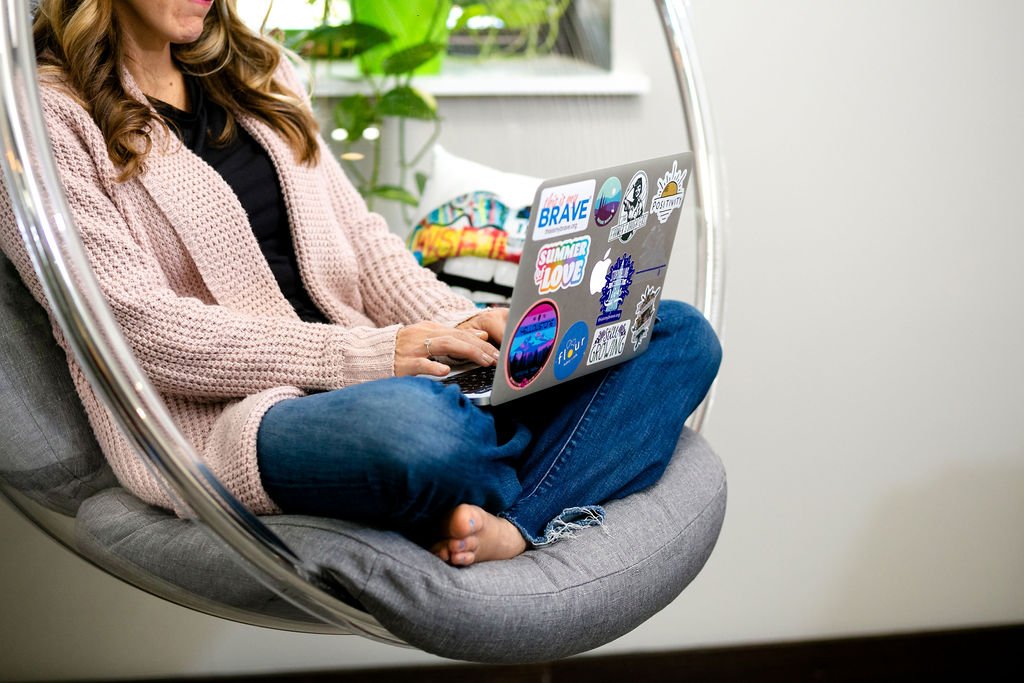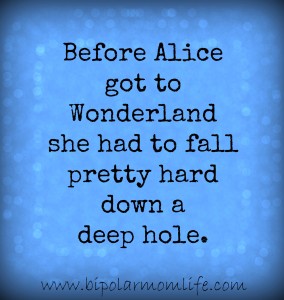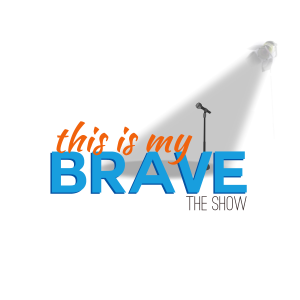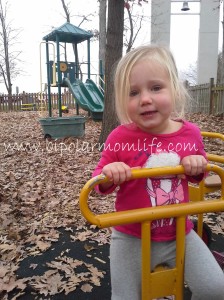If we never make it past the small talk to really open up to a friend or neighbor about our depression, or our anxiety or our eating disorder or whatever it is that we’ve hid for so long because we were scared of being judged, then how would our friend ever be able to love us as who we are?
Read moreA Letter to Parents with Children Who Have Mental Illness
All I'm asking is that as parents, we don't turn a blind eye to the mental health crisis plaguing our country today. The fact that mental illness affects more Americans than cancer, heart disease, and diabetes combined means that it's an issue we all need to address. Especially when bringing a new person into the world.
Read moreI Landed in the ER after watching '13 Reasons Why'
Four days ago I finished watching the Netflix series ‘13 Reasons Why’ and drafted an opinion piece which I published Monday morning. The show rocked me to my core. So much so, that I landed in the Emergency Room of my local hospital. This is the story of how and why that happened.
 I live with type 1 bipolar disorder. For those who aren’t aware of the various types of bipolar disorder, Bipolar Hope Magazine is an amazing resource and they have an informative section on their website which describes the types of bipolar and different symptoms. In a nutshell, my type of bipolar disorder means that I lean towards the manic side of the condition. If I’m not careful to protect my sleep, I could find myself launching into a manic episode. It doesn’t happen overnight, rather, over the course of several nights of getting little to no sleep.
I live with type 1 bipolar disorder. For those who aren’t aware of the various types of bipolar disorder, Bipolar Hope Magazine is an amazing resource and they have an informative section on their website which describes the types of bipolar and different symptoms. In a nutshell, my type of bipolar disorder means that I lean towards the manic side of the condition. If I’m not careful to protect my sleep, I could find myself launching into a manic episode. It doesn’t happen overnight, rather, over the course of several nights of getting little to no sleep.
As I mentioned in my opinion piece, I put my mental health at risk by choosing to watch the show. I didn’t know how risky it was to begin watching the show because I’ve been mentally healthy for the past 7 years. The last time I was hospitalized for a manic episode was, ironically, exactly seven years ago this month, when I was 5 weeks pregnant with my second child. I thought since I had been so stable for so long, it couldn’t possibly be that risky to watch a few episodes.
I was wrong.
I started watching the show Friday evening, and got through four episodes (binging) before forcing myself to shut it off so that I could get some sleep before flying to Cedar Rapids, Iowa for my nonprofit’s show the following night. Our Iowa Corridor This Is My Brave show was incredibly moving and inspiring, as all of our shows are, and I was so excited to get to spend time with the show’s producers and cast members afterwards. We went out to a local bar and played Cards Against Humanity while eating and hanging out. I had a blast. But unfortunately didn’t get to sleep until 2am EST, and awoke at 6am Sunday morning. I usually sleep well when I’m on the road, but I had so much on my mind having started watching the show the night before and wanting to continue watching.
I pushed play on episode 5 shortly after waking up, and was able to finish the series in the airport on my way home on Sunday. I was furious by the time I finished, and reached out to several of my friends via text to see if they had watched and to get their thoughts. Everyone seemed to have similar feelings, but slightly different reactions. Overall, the few people I was able to connect with directly were shook up by the show, but were glad it was out and was opening the eyes of the public.
At that point I began thinking about those in my circles who were already vulnerable, sensitive. How would they take it if they had watched? How would teenagers react to the show? Especially if they didn’t have solid support systems in place, if they were already in a tough place, if they didn’t have the energy or resources to access proper mental healthcare.
I landed around 8:30pm and grabbed an Uber home. I normally enjoy chatting with the driver, but on this particular ride I needed to connect with one of my close friends. I called my This Is My Brave Co-Founder Anne Marie Ames. She and I have been friends for four years, and I needed to tell her how the show affected me. We talked the entire ride home, and agreed to catch up again during the week.
My husband had let our kids stay up late so they could see me, so I hugged and kissed my little people and got them tucked in by 9pm. My husband knew how I was feeling because I had called him from the airport, and he knew that I wasn’t sleeping well. The plan at that point was to focus on sleep all week, make it a priority again. On the flight home from Chicago I had jotted down my feelings and initial reaction to '13 Reasons Why', and I told him I felt that if I was able to get them organized into a piece that made sense, I’d likely sleep better. I started pulling my thoughts together, tapping away at my laptop, and he went up to bed.
I crawled into bed around midnight, as it had taken me longer than I had hoped to draft my reaction. But I did feel better once I got it out, so I was hopeful I’d be able to get some quality sleep.
Only, instead of crashing and sleeping hard, my sleep was broken and riddled with nightmares. I woke at 5:30am, and since my husband was already downstairs doing his normal early morning workout in the basement, I grabbed and pen and paper and let my feelings flow again. I shot off a draft of my revised piece to two friends and by then it was time to wake the kids and get them off to school.
I recognized my symptoms of hypomania and immediately told my husband that I was going to call my psychiatrist at 8:30am when they opened to get an appointment. He said that he thought that was a good idea and off my family went to work and school. I normally find relief in the calm of the morning once the house is quiet and I’m on my own. But instead I found myself feeling that familiar current of mania beginning to rush through my blood and anxiety creeping in.
I still hoped I could relieve some of these symptoms by publishing my reaction to the show. I felt a little better after hitting Publish on Medium, but things escalated quickly from there.
I picked up my kids from school and took them out for frozen yogurt, one of our favorite treats. I hadn’t seen them all weekend, so it was fun to catch up. As we were sitting there, Kelly, my best friend from college called to see how our Cedar Rapids event had gone. I told her it was amazing, as all our events are, but that I had a lot on my mind. She caught on immediately that I wasn’t in a good place, probably based on the tone of my voice, but I told her I couldn’t talk because of where we were and the kids were with me. She offered to pick up the groceries I said I’d be running out for later that evening, so that I could head to bed early instead. She agreed to meet me back at my place in ½ hour.
{One of the things Kelly asked was critical for her to know how I was doing mentally, and she knows this from being there when my very first manic episode came on back in December of 2005. She asked me where I was on a 10-point scale. I was at a 6-7.}
When a person with type 1 bipolar is at a 6-7, it means that they’re in a hypo-manic state. A person can very quickly go from a 6-7 to a 9-10, meaning they need to be admitted to a psychiatric hospital, if things aren’t addressed in an urgent manner.
Once we were home, I did my best to summarize for Kel why the show '13 Reasons Why' affected me so deeply. She’s a teacher, and hadn’t heard of the show, but when I told her how I had met a friend of mine for coffee that afternoon, she had a better understanding. The friend I met up with had been directly impacted by suicide, as her son Jay took his life last year, and now the family is pursuing a lawsuit because Jay’s guidance counselor had been alerted by a friend three weeks before he took his own life. The counselor had neglected to contact Jay’s parents. You can read about it in the Washington Post.
Little did I know, Kelly had already set an emergency intervention plan into place, even though she may not have noticed it at the time. While she was picking up the groceries for me, she called my husband and let him know that she was concerned about me. She also texted another one of our close friends from college who had a friend who was a pharmacist. (What can I say? It takes a village.)
When Ben got home, he found the kids happily playing video games, while Kelly and I were sitting in the dining room trying to figure out a plan. I needed Ambien to ensure that I got a solid night’s sleep. The only problem was that I hadn’t used a sleep medication in seven years, so we didn’t have anything (expired or otherwise) in the house. We called my psychiatrist’s office to see if we could get through to an after-hours line. We left a message for my doctor’s medical assistant, but by then it was already 6pm and we were running out of time. We called my regular pharmacy, but my psychiatric medication info was out of date. (Side note: I use a mail-order pharmacy to fulfill my regular mood stabilizer prescription which I’ve been on for the past 7 years at the same dose.) The pharmacist at my regular pharmacy recommended an over-the-counter sleep aid, but we weren’t convinced that would work for me given my level of hypomania.
Our friend who is the pharmacist (in California) communicated by text that if I didn’t have Ambien on hand at home, I would need to go to the Emergency Room to get a prescription for it, and that was what she recommended given my symptoms. I argued it was overreacting, but based on my experience living with this condition for eleven years now, and my past 4 psychiatric hospitalizations for mania, I also knew she was right.
Kelly offered to drive me to the hospital while Ben held down the fort at home. I resisted at first, as it seemed dramatic and unnecessary. I wanted to just get an OTC sleep med, and said we could get Ambien the next day from my psychiatrist. But looking back now, it's a good thing I didn't resist as I could have ended up in handcuffs again, being carted off to the Emergency Room and then the psychiatric hospital. I didn't want my kids to have to see that happen, so I happily went along with the intervention plan.
We joked on the drive over about how efficient my intervention team was and how I was voting her President of the team based on her stellar performance. (In college, Kelly was President of the water polo team and I was Vice President, so it seemed fitting.) We were immediately admitted to the ER, the intake nurse took my vitals, and I was sent back to a triage room with a bed. By that point I had called my parents to let them know what was going on, letting them know the plan and that we had everything under control. They were worried but relieved, and asked that I keep them posted.
The ER doc was really great, and got us in and out quickly with a script for the Ambien that hopefully would do the trick and get me through until I saw my psychiatrist on Wednesday. Ben had called his mom and she was already at our house by the time I was getting my discharge papers, and he met us at the hospital right as I was released so that he could drive me to get my script and Kelly could head home to her family.
Ben’s mom got the kids in bed as I called my parents to update them once we got home around 8:30pm. I ate a little something for dinner, and was crawling into bed by 9:30, ready to let the meds do their trick and lull me into a deep sleep.
Only it didn’t exactly work as planned.
I slept from 10pm until I woke at 1:30am, unable to get back to sleep. Hypomania/mania has a way of doing that to a person. I woke my husband and told him I couldn’t sleep, so I took another dose of the sleep med. I woke groggy at 6am Tuesday morning. Concerned that I had to take two doses, when in the past one dose had worked for me, we called to bump up my psychiatrist appointment, and luckily she had a slot in her schedule for Tuesday afternoon.
My husband was able to take time off from work to drive me to my psychiatrist appointment. We filled her in on everything that had happened, and made a new plan including medication changes. She provided us with her emergency contact info in case we needed it, and answered all our questions. We were in and out in an hour total. My mother-in-law was able to help us with our kids while my husband went back to work for the afternoon and I went to run a few necessary errands, including picking up my new prescription. My therapist (who I haven’t seen since December, because I’ve been “busy”), has an awesome online scheduling tool for current clients. I grabbed one of her only two open appointment slots for Thursday.
Tuesday night we followed the plan. It was extremely difficult to get out of bed Wednesday morning due to the side effects of the medication changes. I haven’t had trouble getting out of bed because of my mental illness for so many years that I forgot what it felt like. It’s hell.
My anxiety has returned due to this “almost-episode,” which is totally normal. It’s just been so long since I’ve felt it that it’s been a little overwhelming. Uncomfortable, yes. Manageable, yes. Especially when I have such an incredible support system and so many resources at my fingertips.
I may have been able to stay mentally healthy for seven years, and yes, that's a long streak. But if this week has taught me anything it's that I'm not immune to relapses. I live with type 1 bipolar disorder and I'll always have it. Like any other chronic condition, it's lifelong. I'll continue to kick bipolar's ass, I know I will. I'm even a little grateful for this week's experience because I had been feeling like a bit of an imposter lately, having not felt symptoms for so long and getting to do this nonprofit work where I hear stories of individuals overcoming mental illness every week. I'll forever be a member of the club, my tribe, as I call it. And together we're ending the stigma surrounding mental health disorders. One true story at a time.
*****
About a year ago, I wrote a guest post for a website called OC87Recovery Diaries, and in it, I stated that we didn’t have a plan. The reason I’m publishing this post is not to highlight how fortunate I am, but to point out how I almost landed in a psychiatric hospital this week, but didn’t, because we had a plan. It may not have been a formal, executed WRAP (Wellness Recovery Action Plan), but it was darn near close, and it worked.
If you or someone you love lives with a mental illness, it's important to have a plan. And if you're in a tough place right now - here are some things I find helpful:
- Know your local and national mental health resources, including the crisis hotlines. This Is My Brave's Resources page is a great place to look, or even just Google it and keep that info handy.
- Make sure you know how to contact your psychiatrist after-hours in case of emergency.
- Keep a journal that lists the meds you're currently taking and what's working for you. Allow those closest to you to have access to this in case of emergency.
- Don't be afraid to be completely honest about how you're feeling. Feeling overwhelmed, triggered, fragile, etc., and sharing your feelings with those you trust is NOT weakness. In fact, it's the complete opposite. It's brave to allow yourself to be that vulnerable and it leads to deeper, more close-knit relationships with the people you love.
- Don't lose sight of self-care. We often get so wrapped up in our day-to-day lives that we forget to take time out for ourselves, and being too "busy" can lead to burn-out and mental health issues.
How I Wish My Doctor Would Have Explained My Bipolar Diagnosis
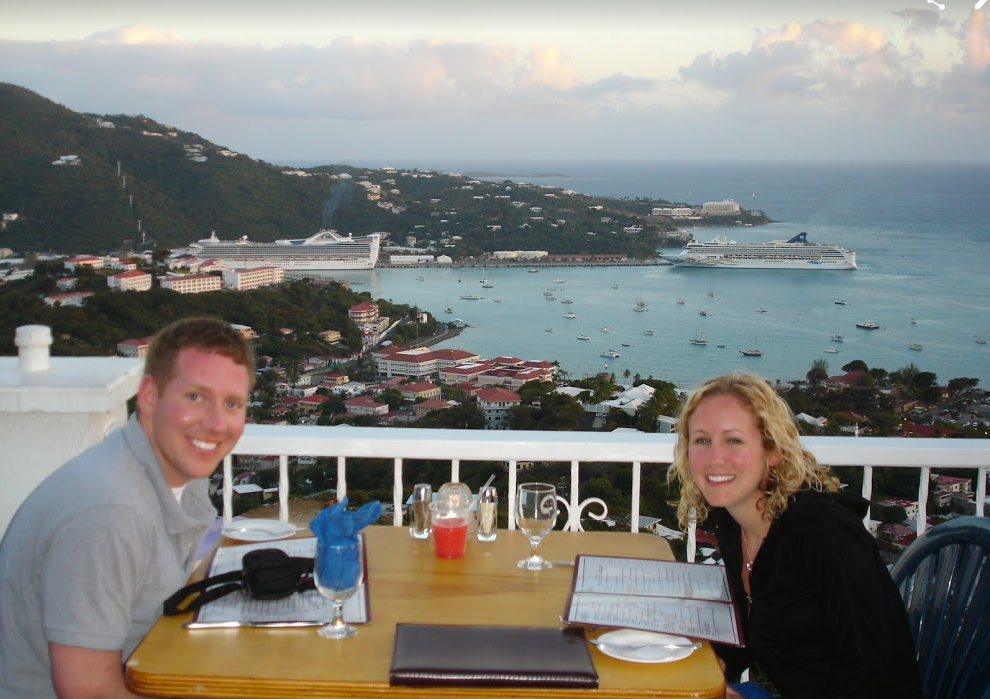 Looking back on my bipolar diagnosis nearly eleven years ago, there are many ways my doctor(s) could have handled explaining the news to me. Only now am I able to clearly see the advice and encouragement which would have made my recovery journey a little easier.
Looking back on my bipolar diagnosis nearly eleven years ago, there are many ways my doctor(s) could have handled explaining the news to me. Only now am I able to clearly see the advice and encouragement which would have made my recovery journey a little easier.
A diagnosis of mental illness is not a life sentence.
When I first heard the words "Generalized Anxiety Disorder" and "Bipolar Disorder" I was devastated. The doctor may have well handed me a slip of paper that said: BROKEN BRAIN and MENTAL PATIENT, because that's how those labels made me feel. Instead, I was given a diagnosis and left to figure out what that meant. I wish my doctor would have taken the time to assure me that yes, I may have bipolar for the rest of my life, but that it was treatable and manageable and that I'd be able to have a full and rewarding life despite my diagnosis.
Keeping a journal or mood chart would help me reach a recovery path sooner.
I wasn't introduced to the concept of the mood chart until several months into my diagnosis. My dad was the one who from the beginning encouraged me to keep a small journal where I could jot down the date, the meds I took (and dosages), how I felt that day, and any side effects I experienced from the meds. It was a simple activity that helped me to get a handle on my illness and I encourage everyone to utilize it no matter what type of diagnosis you encounter. Looking back at my old journals sometimes makes me sad because I remember how sick I was back then, but I also realize how far I've come.
You may have bipolar disorder, but that doesn't mean you can't have children.
One of the things that most devastated me when my mental illness first emerged was an intense fear of not being able to fulfill my dream of one day becoming a mother. I don't remember many of the doctors I saw during the first year following my diagnosis ever broaching the topic of motherhood, except for one. The consultation with the doctor who listened to my concerns over not being able to have children provided me hope for the future. He assured me that wasn't the case, and that by working closely with my doctors and putting a support system in place, a family was indeed something I could have. Within eighteen months after that consultation I was pregnant with my first child.
Learning to protect your sleep will be your greatest advantage next to your medicine, for managing your condition.
I am a night owl. I've tried to flip my preferences, by forcing myself to go to bed earlier in order to wake up before the sun. But I just love the way the house gets quiet after the little ones have been tucked in. There are plenty of nights when I have the motivation to keep burning the midnight oil, but experience has taught me that I will only pay for the lack of sleep in the days that follow in the form of erratic moods. Maintaining a regular sleep/wake pattern has been crucial to my long-term recovery and I wish I would have known this earlier.
The sooner you begin talking openly about your struggle, the sooner your true healing will begin.
I hid my struggle for many years because I felt so isolated and embarrassed. I was convinced that none of my friends or extended family members would understand. I thought everyone would think I was "crazy" for having suffered the number of manic episodes I had endured. The feelings of shame were so intense that I began searching for stories of other people who had made it out of the darkness. I told my psychiatrist that I wanted to start blogging about my experience and then write a book, and she immediately discouraged me from disclosing. I'm glad I didn't listen to her advice. The point at which I made the decision to write openly about my mental illness was the beginning of a better life. One in which I didn't need to feel ashamed about a condition that affected my brain.
What do you wish your doctors would have told you when you were first diagnosed?
Mental Health Stories in the news
We're seeing more and more stories of individuals overcoming mental health struggles in the news. Stories of resilience and pride are emerging, as we work to educate society about the battles in our heads, these invisible illnesses that so many Americans live with. I'm overwhelmed with gratitude for the work I get to do each day because I know that by putting our stories out there, we're slowly and steadily giving permission to so many others who haven't yet exposed themselves for fear of being judged. The climate is changing, although we have a long way to go.

More and more we learn about people who have lost their battle with mental illness, and the family members who are telling the truth rather than covering up the fact that they lost the person they loved to suicide. Task forces are being created, families and communities are coming together to force change when it comes to mental health awareness. It's an uphill climb, but we're clawing our way up the mountain.
A few months ago I had the privilege of sharing my story with an incredibly thoughtful and engaging writer. The story came out on June 2nd, on the front page of the Washington Post.
The support surrounding the release of the article was outstanding and so positive.
A month later, This Is My Brave was featured in a 4-page article in O, The Oprah Magazine. Once again, the support flowed in, and tons of interest from individuals all across the US and Canada for hosting new shows for next year.
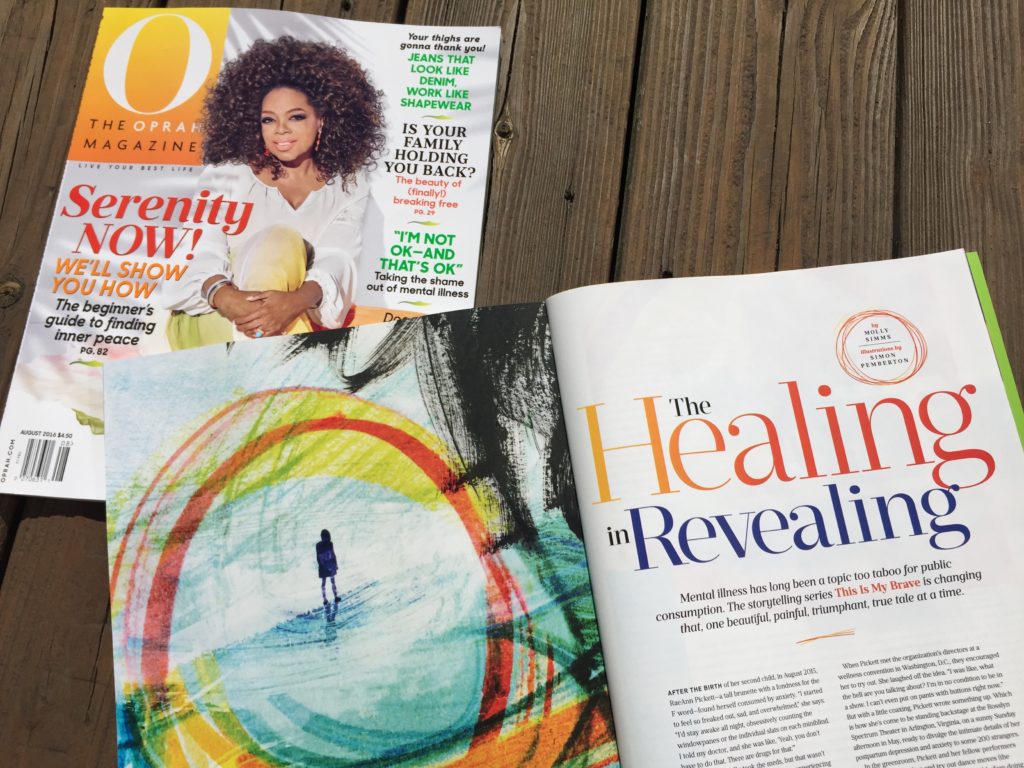
It's been a busy time. As I work with my volunteers and Board members to make the best decisions for strategically guiding our organization forward, I'm also trying to stay aware of my own mental health. I am learning to say "No" to certain opportunities simply because I cannot do it all. Even though I want to be able to get involved on so many different levels with the initiatives being created, I have to protect my health and emotional wellbeing.
When we take care of ourselves first we're able to focus on the important things and tough stuff doesn't feel as heavy.
I make sure to pay attention to signals my body sends me. If I've been at the computer too long, I get up and out of the house. Lately this has been taking the kids to the pool to enjoy the sun and fresh air. I find time each day to turn on an at-home workout DVD and get in 30 minutes of yoga or cardio (just ordered a new Beachbody program that I'm really excited about - Country Heat!). And am counting down the days until our beach trip next week, trying not to stress about the fact that we get home on Sunday and the kids start school the next day.
Life is good.
I will not hide the fact that sometimes I do feel nervous about what the future holds. I can only live in the present, plan for the future, and stay true to what I believe. That our stories provide hope, and by helping to bring these stories into the light we can hopefully be the change we want to see in the world.
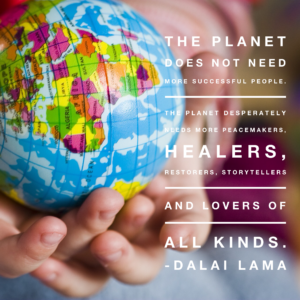
Clarity. We all need to talk about mental illness, celebrity or otherwise
I've been thinking a lot about the post I published yesterday about my inability to relate to Kristen Bell opening up about her anxiety and depression. I don't know why it struck me to write about my feelings, but I wrote them out and put it out there, and the more I thought about what I wrote, the more I began to disagree with myself.
Sure, it's hard to relate to a celebrity because their lifestyles seem so dramatically different from the average person who struggles to pay bills or isn't able to get appropriate mental health care because they don't have insurance. But this lack of being able to identify with a famous person shouldn't have any impact on my appreciation for their ability to share their story about overcoming mental illness and stigma.
I'm sure it took a great deal of courage for Kristen to open up in that interview, the same way our This Is My Brave cast members conjure up a certain amount of bravery to audition for, and then share their stories on stage through our shows.
I'm embarrassed to admit that I think what I was feeling had more to do with envy than of not being able to empathize with a famous person sharing their story of mental illness. I'm envious that a celebrity has a much bigger platform than we do, and therefore when they share their stories they immediately garner a TON more attention than we've seen for all the hard work our organization has done over the past three years.
One of my favorite writers once wrote about envy, and I found myself re-reading her words today. Glennon reminded me today that: Envy is just unexpressed admiration. It’s respect holding its breath.
I constantly need to remind myself that we need to focus on the important work we do and that when the time is right, I'm confident our organization will attract the attention of national media. In fact, it may begin happening sooner than we thought.
This is my life's work now, this work of storytelling. My organization encourages individuals to share their stories to end the stigma. I have no right to say that a celebrity sharing her story is any less impactful than a member of my own community.
Kristen, blog reader Jill, and anyone else I may have offended from my post yesterday, please accept my apology. Thank you to all who join us in the effort to end stigma, celebrity or not.
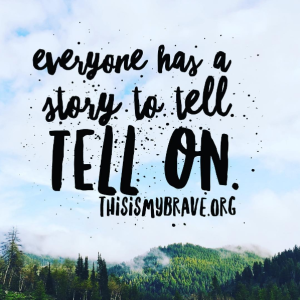
Bringing Mental Illness into the Light
ball-407081_1280
Rejection hurts. It stings my heart and crushes my soul. When it happens more than I can count on one hand in a matter of three days, well, it makes for a shitty week. Makes me wonder if it's worth all the effort.
This morning I unconsciously pulled a teeshirt out of my dresser drawer. I was immediately reminded of what drives me as I pulled the shirt over my head, stared at my reflection in the mirror. What pushes me to continue on through the no's, the unreturned phone calls, the doubts in my mind.
I've heard these doubts whispering in my head before. They were gossiping amongst themselves, loud enough for me to overhear, when we launched our Kickstarter in 2013. Even when we surpassed our goal, they still kept on chattering through our auditions, rehearsals, right up until I walked on stage with my cast for our debut show. Once our cast took to the podium, one by one, we finally silenced those doubts.
So they've returned, and I'm not surprised. I have to once again focus on our mission, why we came together to raise our voices for the greater good.
The gray tee with maroon block letters I was wearing today is one of my biggest reminders. VIRGINIA TECH. We will never forget.
I often wonder what would have happened if one person would have been courageous enough to have been the net that could have prevented the awful tragedy of April 16, 2007. One person reaching out. One person noticing. One person providing help.
I know it's so much more complicated than that, believe me.
I remember when the news broke, where I was, what I was doing. Shaking. On the phone with my brother, a VT alum. Then my husband, also an alum. Staring at the TV in disbelief.
The power of This Is My Brave lies in the vulnerability of the people who decide to stand up on stage and tell their story through a microphone, or publish their words to our community's blog. We've been through the unthinkable. But we've made it to the other side. We're stronger, better equipped to continue the fight. Ready to make a difference.
We all have our struggles in life. What if, instead of pushing those issues and problems and fear of being judged down deep inside of us, we made a bold move and opened up?
I used to be afraid of people finding out that I have bipolar disorder. But ever since I stopped hiding, I've noticed something huge. The vast majority of the time, the person on the other end of the conversation says, "me too." Or, "someone close to me is suffering from depression," or "my mom/dad/brother/sister/aunt/cousin/etc./etc./etc. has a mental illness."
It's everywhere.
Which is why I won't give up. I won't stop talking about mental illness because we're all affected by it. And I want to change lives by continuing to bring true stories into the light. If just one person is helped by this work, it's all worth it.
Move over insecurity, I have important work to do.
We Need Universal Mental Health Screening for Women Having Babies
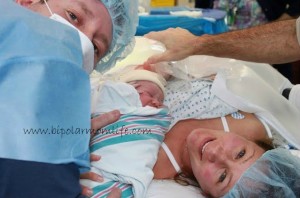 I experienced both a postpartum mood disorder (postpartum psychosis) and a perinatal psychiatric issue (a manic episode which led to psychosis) very early on in my second pregnancy. I had been diagnosed with Bipolar Disorder two years before my husband and I decided to start a family, and yet I found limited support and information in my quest to have as healthy a pregnancy and postpartum experience as I could. When I think back to that time in my life, I strongly believe that if I had received better screening - particularly after my first pregnancy - much of the trauma and heartache of what I went through could have been avoided.
I experienced both a postpartum mood disorder (postpartum psychosis) and a perinatal psychiatric issue (a manic episode which led to psychosis) very early on in my second pregnancy. I had been diagnosed with Bipolar Disorder two years before my husband and I decided to start a family, and yet I found limited support and information in my quest to have as healthy a pregnancy and postpartum experience as I could. When I think back to that time in my life, I strongly believe that if I had received better screening - particularly after my first pregnancy - much of the trauma and heartache of what I went through could have been avoided.
Before I experienced mental illness on a personal level, my ignorance of the various forms of psychiatric conditions caused me to judge people whose stories were covered in the media. I remember watching news coverage of the Andrea Yates trial thinking HOW COULD THAT HAPPEN? And then it happened to me seven years later. Thank God my outcome was drastically different.
Just this week a pregnant mother and her three children were rescued in Daytona Beach, after she drove the family minivan into the ocean. A family member had called police hours earlier to express concern over her strange behavior, including talk of demons. On the 911 tapes, you can hear the sister request a well-being check because "she's like having psychosis or something."
This woman literally saved her sister's life, the lives of those three children and the life of her sister's unborn baby with that call for help.
They were lucky to have avoided an outcome similar to that of the Andrea Yates case. Simply because someone close to the person who was suffering took action.
Now it's our turn to take action. There is an urgent need for changes in the way we screen women during pregnancy and postpartum in order to stop incidents like these from ever occurring in the first place.
Maybe this woman's sister recognized what her family member was going through because of the increase of more open dialogue about women's mental health issues. I can feel the wave of mental health awareness gaining momentum and hope that very soon there will be less ignorance out there and more acceptance. Because together we can make a difference.
Which is why I support this important White House petition to create mandatory universal mental health screening for pregnant and postpartum women. Did you know that suicide is the leading cause of death for women during the first year after childbirth? Or that 1 in 7 women will experience a mood or anxiety disorder during pregnancy or postpartum, yet nearly 50% remain untreated?
We need change. We need to screen every mother, every time to prevent and treat perinatal mental illness.
Recovery is possible - I am a perfect example of this. But wouldn't it be incredible if in the future we could catch cases like mine before they escalate? Before they lead to suffering and even death? No woman should have to suffer in silence because she's afraid to admit what she's thinking or feeling. We need to provide her with the chance to find recovery early. We need to recognize the signs and symptoms and take action.
Please take a moment to sign the petition: Every Mother, Every Time. Creating a WhiteHouse.gov account takes only a minute and there are simple tools to share the petition on Facebook and Twitter once you have submitted your signature.
This movement will save lives. We need 100,000 signatures to get the attention of the Obama Administration. Let's come together to make our voices heard on this critically important issue.
Every Mother, Every Time.
Tweet about the petition with the hashtag #EMET:
[Tweet "Universal mental health screening 4 every pregnant & postpartum woman http://ow.ly/uho8X. #EMET"]
Thank you for helping to spread the word.
My Last Visit to the Psych Ward
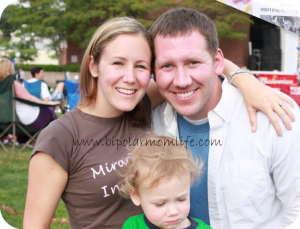
I noticed that the flowering plant on the counter of the open nurse's station had withstood my incessant plucking, as it still had about a dozen blooms, by some miracle.
“She loves me. She loves me not. She loves me.” I debated, pulling at the tender petals of a flower I had stolen late into the night on my evening of admittance. “I know it’s going to be a girl. But what will she name it?” I mused to myself out loud, lost in the psychosis which my pregnancy had spun me into.
Later that night, or maybe it was the following morning, one of the nurses tried to get me to eat. “You need to eat something, sweetheart. For the baby. Here, try this,” she urged, shaking the small box of Apple Jacks she had brought from the kitchen down the hall. We were in my sterile little patient room, a desk between us. She sat in a chair across from me, attempting to coax me into taking a few bites, as I sat in another chair, shaking, sweaty and weak from exhaustion. A small container of milk was ripped open on one side to form a drinking spout, but hadn’t been touched. I felt a little like Alice in Wonderland, staring at the items in front of me labeled "Eat Me" and "Drink Me."
I may have taken a few bites, a sip of milk, but my mind told me she was trying to poison me. I made sure not to eat or drink too much, for fear of never waking up.
Eventually I did decide to lie down and rest on the stiff single bed with the scratchy white sheets in the far corner of the room. No one slept in the other bed in the room. I had my own private room. Good thing, too. I needed to just sleep, to dream off the mania. It had taken two days of the nurses pumping me with antipsychotics until I finally relaxed enough to sleep.
I emerged a day later, after a long, hard sleep, to “meet” the other crazies in the day room. I might have met them a day or two earlier, but my memory was a slice a Swiss cheese when I was manic, so I didn’t remember. Two did stand out, though.
Tony was a big, burly Italian guy who chain-smoked and had the cough to show for it. He was warm and engaging, and I liked him immediately. He made me smile with his obscene jokes, a welcome escape from the situation we had all found ourselves in. Tony was constantly searching for a number in the phone book. When he wasn’t in the smoker’s lounge, he was on the phone pleading with the person on the other end to come pick him up.
Mary had left the day before. She was young like me, and claimed she was also very early pregnant, although I didn't believe her. Hell, I didn't even believe I was five weeks along. We had promised to keep in touch, but I knew there was no way I’d live up to my end of that deal. I didn’t like to take hospital memories home. Art therapy projects were an exception. Nothing like a glimpse into a mad mind for old time’s sake. So instead of giving her my number when she wrote down hers for me, I hugged her goodbye, telling her it would be too painful. She understood.
The exercise lady arrived in the afternoons, swooping in to lead the patients in yoga or dance sessions in the day room. She’d turn on 80’s pop music and we’d bop around, forgetting about the frustrations attached to having lost touch with reality. During those moments, everything seemed to disappear and for three minutes I was okay. Hips swayed, eyes closed softly so I could really feel the music. But as quickly as her sessions began, they were over, and we were back to waiting for our next activity to pass the time until we’d see the outside world once again.
Held for forty-eight hours of insanity, twenty-four for the meds to really start kicking in, and another forty-eight and I was good to go. A final meeting with the staff psychiatrist and I was given my ticket out of that joint. It had been my fourth stint in a psych ward, and it was a house of medicine I was hoping not to have to visit again for a very long time, maybe even never.
Ready to get back to my own home, to my family where I’d be nursed back to complete health so I could get back to being the kick-ass mama and wife they loved. This last visit to the psych ward solidified my commitment to staying well. For myself, for my husband and for our son and the unborn baby I was carrying. Not another day would pass without that little salt pill sliding down my throat before bed. My family deserves this promise. And they’ll get it, forever and ever.
Letting Go of the Secret
 Photo Credit: notsogoodphotography via Compfight cc
Photo Credit: notsogoodphotography via Compfight cc
Living a life with an ever-present fear of revealing a certain secret part of yourself isn’t truly living. I know, because I’ve been there. Being caught up in an inauthentic version of myself wasn’t the way I wanted to live my life. And so I made some changes. The results were incredible.
At twenty-six years old, newly married and at the peak of my career as an agency recruiter, I was hit with mania. It came without warning, and felt exactly the same as slipping on black ice and landing flat on my back, the wind sucked out of my lungs and a searing pain pulsing through my bones. I was terrified of what was happening in my brain. I had lost control of everything and my career and reputation were on the line, not to mention my relationship with my husband who didn’t see this coming.
How would I ever recover from this mess?
I would, although recovery eluded me several times. Following my diagnosis, I spent a full year in what felt like an extended visit to a deserted island: the isle of depression. It seemed like no one could possibly understand what I was feeling. I fought waves of anxiety each morning, and would calm myself down from my afternoon anxiety by collapsing on the couch in front of the television, tears soaking the oversized pillow which my head rested on.
I saw many doctors, so many that I can’t remember most of their names. My parents pushed for second, third, fourth opinions. Not because they didn’t trust the doctor’s opinions, but because we hadn’t figured out what would bring me back to my baseline. My normal. Finally, after seeing one of the top doctors in our area, a national specialist in the study of bipolar disorder, I was ready to follow his advice, the same medication recommendation that the previous few psychiatrists had been urging me to try.
Within two months I felt better than I had felt in an entire year. Slivers of my old personality were coming back. When I laughed, it felt genuine and amazing, better than it had felt even before I became sick. When several weeks had passed and I realized I hadn’t cried, I was shocked. The drug was actually working for me.
There would be two more hospitalizations in the years that followed, only because I had taken myself off my medication during pregnancy to protect my kids. When my daughter was only 8 months old, I decided I was ready to tell my story in order to help other women who might think they couldn’t have a family because of their mental illness. I launched my blog and began writing, but kept my identity a secret because I feared the repercussions of the stigma associated with mental illness.
I kept writing and sharing my experience as a mom raising two small kids while at the same time managing my bipolar disorder and over the next year and a half, I realized that keeping my identity a secret was only adding to the stigma surrounding mental illness. It was a part of my life and I wanted to show society that I’m a real person with real emotions and I believe that people who live with mental illness should be treated like any other person living with any other life-long disease. We didn’t ask for these conditions we were dealt, and the last thing we need is for society to look the other way when we’re suffering and need support to find recovery.
I was no longer ashamed.
And so in April of 2013, I announced on my blog that I was “ready to not be anonymous anymore,” and I took a brave stand against stigma. The support that poured in from my family and friends, and people I didn’t even know but who had read my post, was overwhelming. The words of gratitude for sharing my story so courageously were like fuel to me, as I kept writing about my experiences and connecting with people who appreciated my transparency.
Six months ago I launched a project and couldn’t have imagined the response it has generated. This Is My Brave is a live theater production where people from the community will take turns at the microphone to share their story on stage via personal essays, original music and slam poetry. This Is My Brave is more than just a one-time performance. We have become a platform and a community for people living with mental illness to speak out in an effort to end the stigma associated with brain illnesses.
Our mission is to ignite and actively promote―through actions and social media― a positive, supportive national conversation about mental illness for those who live with, or love someone who lives with, a brain illness. Through the sharing of stories and experiences of those in recovery, we expect to provide a sense of community and hope; encouraging others to share their stories. We believe that each time one of us talks openly about living with mental illness, we create another crack which helps to break down the stigma. We’re currently in the process of converting to a 501(c)3 non-profit organization and have been actively planning the pursuit of our mission beyond the debut of This Is My Brave in Arlington on May 18th.
It’s time we bring mental health issues into the spotlight because they’ve been in the dark too long. Please visit www.thisismybrave.com to learn more about the show. Auditions are currently being scheduled (www.thisismybrave.com/auditions) and tickets to attend the show are on sale now at EventBrite.com.
Follow the show on Facebook, Twitter and Instagram for all the latest news!
The Year I Learned to Jump
 Photo Credit: Jimbo N via Compfight cc
Photo Credit: Jimbo N via Compfight cc
“ALWAYS DO WHAT YOU ARE AFRAID TO DO.” - Ralph Waldo Emerson
Even in the midst of my intense wrestling match with bipolar disorder, right smack in the middle of the chaos of a frazzled mind and rattled sense of self-worth, I somehow knew one day I’d take the type of jump where there's no looking back once you launch yourself into the air.
I knew I’d face my fear.
Today, in these moments when I type here in my makeshift office and upload my words to this space which has become my launching pad for jumping off my cliff of fear, I’m opening up. Putting it all out there, no longer the only one bearing the weight the vivid flashbacks from the brunt of my struggle. I say not the only one because inevitably after I hit publish someone will respond with a “me too."
As 2013 comes to a close, I’m in the thrilling moments, body tingling from the pull of gravity after the big leap. The seconds are precious and they’re swiftly racing by like seconds on the New Year’s count-down clock, but I’m not bracing for the impact. Instead, I’m preparing to feel my toes slice through the surface of the water. {I prefer to jump in feet-first.}
Because in my dream about facing my fear, I’m on a huge cliff in Maui overlooking the deep blue ocean. Why not, right? It’s a dream.
I crave the feeling of weightlessness that comes from the adrenaline rush coursing through my body in mid-air. And I’m grabbing onto each and every one of those seconds as they fly by.
Resisting the urge to open up about my journey is almost impossible. At various times in my day-to-day activities, scenes from my first hospitalization in 2005 bubble to the surface of my memory. Or my second stint in the mental hospital. Or the third and fourth which sometimes confuse me with their shorter, more intense flashbacks. They were the times I was protecting my babies. Plus, they say the more you experience mania the less you remember. Makes sense to me now.
When mania took hold of my mind for the first time and spiraled out of control into psychosis, I spent three nights in a psych ward. Returning to the office the following Monday, I was able to gloss over my absence and say the doctor’s attributed my strange behavior to the lack of sleep and stress I was under at work. No one knew the real truth, although I’m sure there were plenty of rumors and assumptions flying while folks gathered around the water cooler on Monday morning.
I’m certain scenarios like the one I experienced happen every single day. Someone is absent from school or work for a few days or a few months and people start talking. And everything is hush, hush. Because societal norms tell us talking about mental illness isn’t the same as talking about someone who is battling cancer or severe asthma or a broken arm.
Well I have news for you: It's time we shatter those "norms."
And those of us who have fought these fights and who are still trudging through the pain and desperation and isolation that is mental illness could use the same support systems that other sick people receive.
More important to us than the flowers, cards, and meals you might send is simply your willingness to listen. To look us in the eyes and accept us for what we’ve been through, where we are right now, and what we will face each and every day and night for the rest of our lives.
Don’t be afraid to know our stories. We’re facing our fears, and we want you to, too.
Be open to us opening up. Give us hugs when we cry. Send us a laugh when you notice we’re down. If we’re too hyper, gently check in and ask if everything is on track with our treatment plan. It feels good to be acknowledged and cared for by those we love.
I have several close friends who do all these things and more and they make all the difference in the world. And of course my husband who is my better half, my voice of reason and the peace to the storm of what is inside me always knows when to step in with the right words to soothe me and keep me centered.
I will remember 2013 as the year I took the greatest leap I’ve ever taken. The year I jumped forward with sharing my words. The year I chose to only look back on the past in order to shift the future into better focus.
The year I did what I was afraid to do. And I haven’t even pierced the surface yet.
Ever been snorkeling, or better yet, scuba diving? {My husband is obsessed with snorkeling. He’s spent hours bobbing on the surface of the various tropical waters we’ve traveled to. I think it's cute.} He knows there are treasures down there. Which is why I’m so excited for my plunge into 2014 with This Is My Brave.
But first I’m looking forward to tomorrow. We're ringing in the New Year with my oldest girlfriends and their adorable kids and fun-loving husbands. It’s the 2nd annual #RomperRoomNYE2013 bash (follow along on Instagram!) and with 8 kiddos plus a 2-month old, the adults will be lucky to make it to the ball drop when we'll clink our champagne glasses with a toast to 2013 and what lies ahead in 2014.
My salute to this past year is composed of heartfelt gratitude for the support of This Is My Brave and our mission to encourage people to talk openly and often about mental health issues in their communities. The year ahead will no doubt be filled with learning experiences as I navigate unknown territories, but I am eager to grow and evolve, to bring these crucial conversations about mental illness into the spotlight.
Twenty-thirteen was the year I learned that facing my fears means enjoying the jump.
So long, self-doubt
Why does self-doubt seem to know exactly when to punch you in the gut and knock the breath out of your chest so fiercely that you wonder if what you’re doing with your life is even making an impact?
A month ago I took the greatest risk of my life thus far by launching our Kickstarter for This Is My Brave, and it went above and beyond my wildest expectations. I thought to myself, “Yeah. $6,500 in 31 days is a lofty goal, but I’m fairly confident we’ll get there.”
The love and support that poured out from our friends and family and people who we hadn’t even met in the form of donations and words of encouragement was both overwhelming and exhilarating.
There are so many people who are just as passionate as we are about spreading messages of hope and inspiration while at the same time silencing the stigma surrounding mental illness. We raised over $10,000 for our show’s mission and I felt like we were on top of the world.
But the emotional high I was surfing on came crashing down like a monster wave when the news of the Deeds' family tragedy broke on Tuesday morning. The weight of the story was like a 50-pound brick on my heart. It was all I could think about. I wanted to scream “THIS COULD HAVE BEEN PREVENTED!” to every person I ran into in my daily comings and goings all week.
And then I met someone who understood.
Have you ever had one of those moments when you meet someone new and you can tell after talking with her for five minutes that she just "gets" you and although you were strangers six minutes earlier, it feels as if you've known her for ten years?
It happened to me on Thursday and was the highlight of my day. Once I got my baby girl down for a late nap, I immediately took pen to paper. A piece of me still wants to prove to my mom that she was wrong. That I've received nothing but overwhelmingly positive support for opening up about living with mental illness, especially from the moms at my son's preschool. The very group she thought might shun me. Back then my mom didn't realize that by keeping quiet about what I was going through she was actually adding to the stigma surrounding mental illness. We were all so new to it eight years ago. And I don't blame her for wanting to protect me. She's my mom, and moms don’t ever want anyone to hurt their babies.
We've come a long way since then and both of my parents {and my in-laws} are very supportive of the advocacy work I'm doing now.
This sweet mom whose daughter has been in my son's class all fall, yet I only met this week. She said something to me as we were chasing our toddlers out the door after dropping off our two older kids in front of their classroom. And I know will stick with me forever.
"You must feel such a sense of accomplishment and pride in what you're doing and how many people you're impacting with This Is My Brave."
And do you know what my response was? Of course I later thanked her for her kind words, but my immediate response was, "I feel like I'm not doing enough."
Part of me felt compelled to blog about the self-doubt that crept into my bones this week to remind myself that what I'm doing with This Is My Brave is pretty spectacular. Even though in the wake of the news out of Virginia this week I feel like it's only a teeny sliver of hope. A faint glimmer of the desire to improve the way society and our government deals with mental illness.
At least it's a start.
We talked for an hour while our 3-yr-olds ran around and explored every corner of the playground. I could have talked with her for the entire rest of the afternoon. But alas, the temperature won out and after running around with no coat on, baby girl was adequately frozen and ready to call it quits. I gave my new friend a hug as we said goodbye and I'm already looking forward to our next impromptu playdate with our littles.
While driving home my thoughts drifted to how the sky looked similar to the way it did in late October of 2008 when I was released from my week-long stay in the hospital after having experienced postpartum psychosis. My heart aches for the Deeds family because they weren't able to get the medical attention and treatment that their son so desperately needed. They should have been visiting him in the psychiatric unit of the hospital today, but instead they are planning his funeral.
This isn't right.
We need the laws changed so that we can protect these individuals from themselves and others when they are so ill. And we need nets, as my friend Glennon so vividly described in this post. We need so many nets.
This Is My Brave is my effort to create a net.
And although I know that I want my next step to be petitioning our government for changes to our mental health system, my focus right now is on this show, my heartfelt contribution to changing the way people feel about mental illness.
And hopefully, in turn, it will inspire people to come together and create actions which will facilitate the change we so desperately need.


